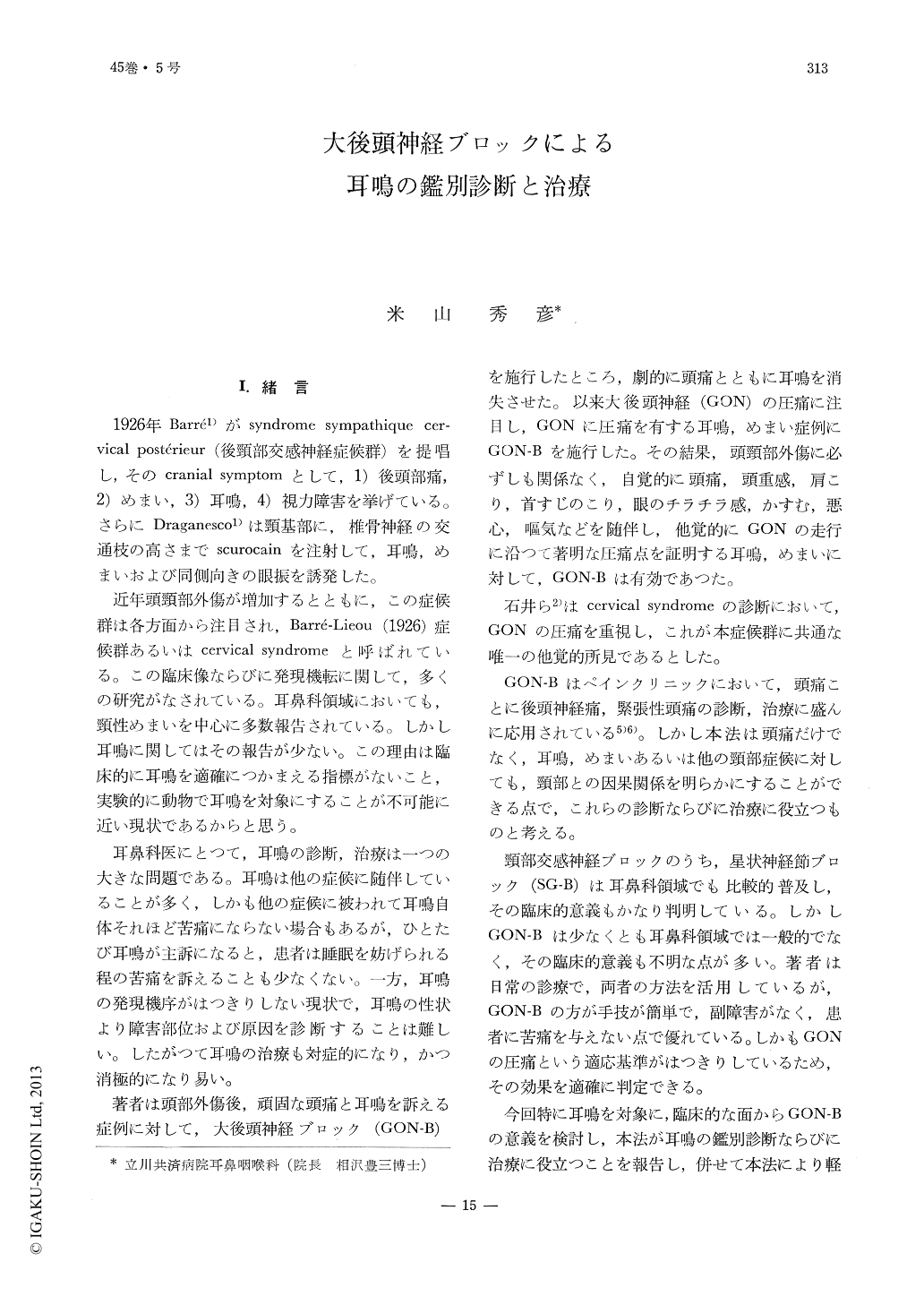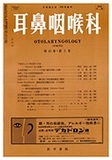Japanese
English
- 有料閲覧
- Abstract 文献概要
- 1ページ目 Look Inside
Ⅰ.緒言
1926年Barré1)がsyndrome sympathique cervical postérieur(後頸部交感神経症候群)を提唱し,そのcranial symptomとして,1)後頭部痛,2)めまい,3)耳鳴,4)視力障害を挙げている。さらにDraganesco1)は頸基部に,椎骨神経の交通枝の高さまでscurocainを注射して,耳鳴,めまいおよび同側向きの眼振を誘発した。
近年頭頸部外傷が増加するとともに,この症候群は各方面から注目され,Barré-Lieou(1926)症候群あるいはcervical syndromeと呼ばれている。この臨床像ならびに発現機転に関して,多くの研究がなされている。耳鼻科領域においても,頸性めまいを中心に多数報告されている。しかし耳鳴に関してはその報告が少ない。この理由は臨床的に耳鳴を適確につかまえる指標がないこと,実験的に動物で耳鳴を対象にすることが不可能に近い現状であるからと思う。
Since Barréin 1926 had reported the "Posterior Cervicl Sympathetic Syndrome", much attention has been given to this phenomenon.
As the author's attention was called to the findings of tenderness in the region of the occipital nerve distribution, the nerve block of the great occipital was tried in a case of tinnitus aurium that presented symptoms suspicious of the cervical syndrome.
This procedure resulted in a complete abatement of tinnitus and, also, in other cases with similarly good results where tinnitus occurred with tenderness of the occipital region regardless as to the impaired hearing.
These case are termed "Cervical Tinnitus", and the standardization of its differential diagnosis is proposed as follows:
1. The tinnitus that diminishes after the initial block of the occipital nerve may be considered as that of cervical origin.
2. The tinnitus that decreases after the initila block and finally subsides after repeated nerve block may, also, be considered as cervical in origin.
3. The tinnitus that decreases after the initial nerve block but recurs persistently in spite of repeated blocks should be considered as to be caused by other factors than cervical.
4. The tinnitus uneffected by this procedurs should be considered as caused by other factors.

Copyright © 1973, Igaku-Shoin Ltd. All rights reserved.


